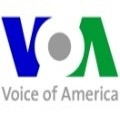It is not by chance these top European diplomats are starting off 2007 with a visit Monday to Washington D.C. They want a global trade agreement, they want it now and they believe the Bush Administration is standing in the way.
The five-year-long "Doha Round" of world trade talks broke down last summer, primarily over subsidies to American farmers, which the U.S. refused to cut to levels agreeable to Europe. Private negotiating has nudged the issue forward.
Peter Power, a spokesman for EU Trade Commissioner Peter Mandelson, says the delegation will urge Mr. Bush to make the deal now.
"Our pitch to him will be that this is a very important moment, a very important moment that should be grasped," said Peter Power. "Real leadership should be shown and that there is the makings of the deal on the table." The United States has said other countries have not made sufficient concessions to warrant a steeper reduction in agricultural subsidies. Power disagrees.
"The U.S. needs to come to the table with a genuine and serious offer in terms of what it can do in this area," he said. The Europeans are also hoping for support from Democrats now in control of Congress. EU Commission spokesman Peter Power says the commission sees the Democratic Party as friendlier than the Republicans toward liberalizing markets and services worldwide.
"It's quite clear that the Democrats are by and large multilateralist," noted Peter Power. "We firmly believe they are genuinely committed to it and it's a question of tapping into that political good will." EU officials say the delegation may meet with the new Democratic leadership ahead of their meeting with the president.

